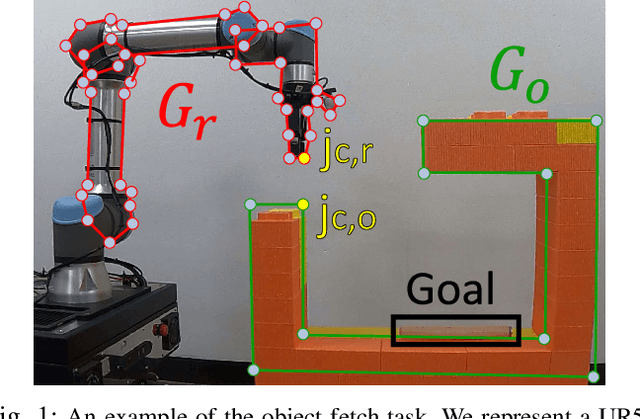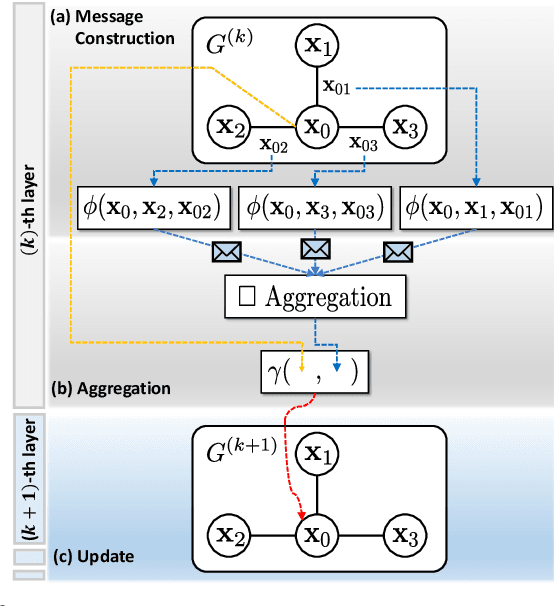GraphDistNet: A Graph-based Collision-distance Estimator for Gradient-based Trajectory
Paper and Code
Jun 03, 2022



Trajectory optimization (TO) aims to find a sequence of valid states while minimizing costs. However, its fine validation process is often costly due to computationally expensive collision searches, otherwise coarse searches lower the safety of the system losing a precise solution. To resolve the issues, we introduce a new collision-distance estimator, GraphDistNet, that can precisely encode the structural information between two geometries by leveraging edge feature-based convolutional operations, and also efficiently predict a batch of collision distances and gradients through 25,000 random environments with a maximum of 20 unforeseen objects. Further, we show the adoption of attention mechanism enables our method to be easily generalized in unforeseen complex geometries toward TO. Our evaluation show GraphDistNet outperforms state-of-the-art baseline methods in both simulated and real world tasks.
 Add to Chrome
Add to Chrome Add to Firefox
Add to Firefox Add to Edge
Add to Edge